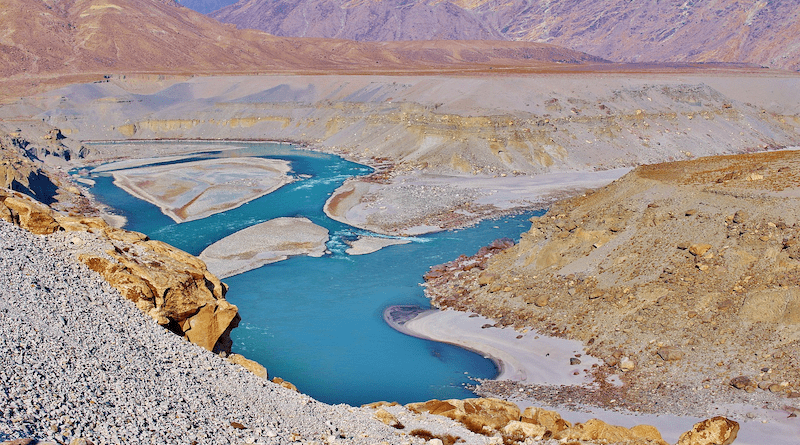Pakistan’s Climate Adaptation Plan: A Welcome Development – OpEd
By Dr. Sahibzada Muhammad Usman
As the global focus pivots towards the pressing issues of climate change, nations, particularly those in the developing world, are recognizing the urgency of not just mitigation, but also adaptation. Pakistan’s recent initiative to create a National Adaptation Plan is a laudable step forward in this regard. Given its geographical location and socioeconomic fabric, Pakistan is highly susceptible to the repercussions of the ongoing climate crisis. Ranked as the 8th most vulnerable nation to this crisis, it underscores the necessity for swift, effective action.
Climate adaptation refers to the process of adjusting to the current or expected climate and its effects, especially in contexts where adverse impacts of change can be minimized, and potential benefits harnessed. For Pakistan, the stakes are high. With threats posed to future development, food, water, and energy security, it’s more than just an environmental concern but also a critical component of national security.
A multifaceted approach is required, addressing various sectors like agriculture, water, energy, and urban development. The evident impact of climate change on these sectors, especially food and freshwater resources, cannot be denied. Both directly and indirectly, the livelihoods of millions hinge on how effectively Pakistan addresses this issue.
However, adaptation is a vast undertaking, especially for a developing country with limited resources. The necessity for external support, both in terms of financial aid and expertise, is evident. While the global community’s role is indispensable, it is also crucial that assistance doesn’t end up placing an undue burden on the already strained resources of the nation.
One of the crucial aspects of adaptation is having a clear and actionable plan. The availability of funds for adaptation purposes is often contingent on the presence of a cohesive strategy outlining its effective utilization. Pakistan’s recent efforts reflect an understanding of this fact.
This National Adaptation Plan, while a welcome development, is only the beginning. The true success lies in its effective implementation, monitoring, and iterative refinement. Engaging the stakeholders, from policymakers to the grassroots community, ensuring their buy-in, and addressing their concerns, will be paramount. Moreover, integrating climate change considerations into developmental planning is no longer just an option but an imperative. Addressing the impending threats requires a visionary approach, transcending political and ideological divides, and prioritizing the nation and its future above all.
Global entities such as the United Nations Environment Program (UNEP) and the Asian Development Bank (ADB) have profound knowledge and resources that can bolster Pakistan’s initiatives. Their research, best practices, and financial aid can greatly aid Pakistan’s adaptation endeavors. Working closely with these organizations can ensure Pakistan is making data-driven decisions and accessing global support systems.
One of the linchpins for any nation’s success in climate adaptation is how aware its citizens are. It is essential for Pakistan to embark on nationwide campaigns educating people about the climate crisis. Using various mediums like television, radio, and digital platforms to disseminate information can play a pivotal role in influencing behavior and fostering a sense of responsibility.
Often, the brunt of adaptation falls solely on governmental bodies. However, involving the private sector can open new avenues for innovation and funding. Companies, especially those with significant carbon footprints, can participate through Corporate Social Responsibility (CSR) initiatives. By integrating climate resilience into their business models, companies not only benefit society but can also tap into new markets and growth opportunities.
Given that a significant portion of Pakistan’s economy and workforce relies on agriculture, it is imperative to introduce sustainable farming practices. Techniques such as conservation tillage, crop rotation, and precision agriculture can help in improving yields and ensuring food security in changing climate scenarios.
The urban centers of Pakistan, like Karachi and Lahore, are already grappling with the repercussions of climate change, from heatwaves to flash floods. Future urban planning must prioritize green spaces, rainwater harvesting systems, and efficient waste management to ensure cities are resilient to climatic shifts.
Studies have shown that women are disproportionately affected by climate change. In many rural areas of Pakistan, women are the primary caregivers and are closely linked to natural resources for their livelihood. Empowering women by providing them with education, resources, and a voice in community decisions can lead to more effective and inclusive climate action.
Laws and regulations must evolve to reflect the changing climate landscape. Implementing strict environmental standards, incentivizing green initiatives, and penalizing unsustainable practices can lay the foundation for a systematic change.
As Pakistan forges ahead with its ambitious climate adaptation plan, it’s clear that the road is multifaceted, demanding concerted efforts from all sectors of society. While the challenges loom large, the potential for growth, innovation, and sustainable development shines brighter.
The nation’s commitment to this cause, backed by its passionate citizenry, robust policies, and international support, makes a compelling case for optimism. It exemplifies the indomitable spirit of Pakistan: a nation that, despite its challenges, continues to persevere and innovate.
In the broader tapestry of global climate action, Pakistan’s adaptation initiatives serve as an inspiration, demonstrating that with unity, foresight, and determination, humanity can overcome its most daunting challenges.

